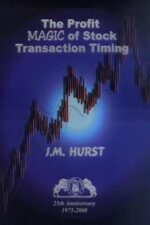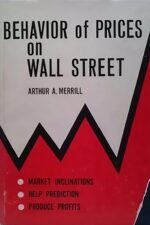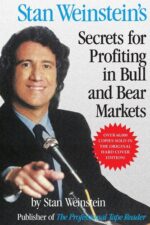Financial Astrology
$16.41
Financial Astrology by David Williams is a concise yet profound introduction to the application of astrological principles in market forecasting, designed specifically for traders seeking to integrate cosmic timing with financial logic. As one of the early modern interpreters of planetary cycles in trading, Williams bridges the ancient science of astrology with the technical demands of modern market analysis.
In this work, Williams explains how planetary geometry—especially the angular relationships between key celestial bodies—affects collective behavior, market emotion, and the rhythm of price movement. He draws clear parallels between planetary aspects, lunar phases, and turning points in financial markets, translating complex astronomical data into an accessible and tradable form.
Through detailed explanations, case studies, and historical market examples, Williams demonstrates how recurring planetary cycles—such as Mercury retrogrades, Jupiter-Saturn conjunctions, and solar-lunar harmonics—correlate with major highs, lows, and trend shifts. Rather than approaching astrology as mysticism, he presents it as a mathematical and psychological tool, where human sentiment, driven by cosmic order, becomes measurable and predictable.
This book stands as an essential guide for traders, researchers, and students of W.D. Gann and Donald Bradley, offering a disciplined framework for forecasting market behavior through planetary time analysis.
✅ What You’ll Learn:
- The foundations of financial astrology and its relationship to market psychology.
- How planetary positions and aspects (conjunctions, trines, oppositions) correspond to market turning points.
- The influence of the Sun, Moon, and outer planets on investor sentiment.
- How to identify high-probability timing zones using planetary cycles.
- Interpretation of Mercury, Venus, and Mars retrogrades in financial contexts.
- Integration of astro-cycles with price charts, trend analysis, and risk management.
- Historical examples of planetary correlations with major market reversals.
💡 Key Benefits:
- Learn to apply astronomy as a forecasting tool for trading success.
- Gain insight into the natural time structure behind price volatility.
- Anticipate critical turning points weeks or months ahead.
- Combine astrological rhythm with technical indicators for greater precision.
- Discover a logical, data-driven approach to astro-trading without superstition.
👤 Who This Book Is For:
This book is ideal for market analysts, Gann enthusiasts, and traders who seek to understand the celestial order underlying market cycles. It also appeals to researchers of astro-economics, cycle theory, and planetary pattern forecasting, offering both conceptual and practical tools for timing trades.
📚 Table of Contents:
– PART I. BUSINESS CYCLE FORECASTING
- CONVENTIONAL BUSINESS CYCLES
- THE SUNSPOT THEORY OF BUSINESS CYCLES
- THE PLANETARY CAUSE OF SUNSPOTS
- TERRESTRIAL EFFECTS OF SOLAR ACTIVITY
- PLANETARY THEORIES OF THE BUSINESS CYCLE
- THE THEORY OF UNKNOWN CAUSES
– PART II. STOCK MARKET FORECASTING
- THE ART OF PREDICTION
- THE RATIONALE OF PREDICTION
- RHYTHMIC STOCK MARKET CYCLES
- PLANETARY CYCLES lN THE STOCK MARKET
- STOCK MARKET FORECASTING SYSTEMS
- PERSONAL INVESTING
- EPlLOG’UE
Financial Astrology By David Williams
| Author(s) | |
|---|---|
| Product Type | Ebook |
| Format | |
| Skill Level | Beginner to Intermediate |
| Pages | 241 |
| Publication Year | 1988 |
| Delivery | Instant Download |
7 reviews for Financial Astrology
Only logged in customers who have purchased this product may leave a review.










Kaleb Diaz (verified owner) –
I am still wading through this book. It is a slow process because it contains so much information. Unfortunately, some of the statistics (copies of past trends) require a large magnifying glass because the publisher / author has tried to condense the charts into too small a space. However, it does give an overall impression of the trends and if you are really interested in those statistics, then it is easy enough to Google the information. The author has gone to great pains to prove every one of his statements in great detail and as such the book is highly credible. As an astrologer I am using the book as a first point of call to gauge what planetary influences are at work for what earthly trends, and then I want to update the information. Remember, this book was written before computers became mainstream (if they existed at all), and certainly the research was conducted without the aid of computers. I am particularly heartened by those in the financial industry who have studied this book and gave it a positive rating. We astrologers are often taken with a large dose of salt (not just a grain) especially by those who have not taken the trouble to investigate the topic for themselves. So I am grateful for those reviews. Thank you and keep it going! When reading this book, expect it to be in depth and chewy but very worth while. When you get into it and apply the information, it will certainly help your financial situation. As we all know, economics is the science of fear and greed, those wonderful human emotions. Just following the moon cycles alone, will aid in determining whether stocks go up or down in concert with those feelings of concern and optimism.
James Hurst (verified owner) –
I read it in the 80’s and thus I am recalling from memory. It is most unlikely the book has been updated since the author has passed on. Perhaps it is somewhat on the superficial side, but in a way that can’t be helped. I say that because as a market trader, I have used planetary cycles in my endeavor. Every market is different in that each responds in a different fashion to various cycles. For instance the beans respond to Mercury, the cattle to Neptune, and the stock market to other planetary configurations (called aspects). I can state in the most vociferous terms that markets do indeed respond to the planets and their relations to each other. Nevertheless, this book will give the novice some insightful means to do market research.
Ila Montoya (verified owner) –
While the content was VERY interesting, it was perhaps the least proofread text I have EVER read. Typos galore. I sincerely would expect more from someone who took the time to compile the information needed to put this book together. The information re: sun spots is particularly interesting.
Chase Lucero (verified owner) –
The title “Financial Astrology” of this book is reductive: this is not another book about horoscopes or sun signs. The subtitle of the book is much more appropriate “How to forecast business and the stock market”: when it comes to forecasting the Business cycle traditional economic and econometric models simply do no work, in this book the author focused (the first edition of the book is almost 30 years old) on non conventional explanations of the Business cycle such planetary and astronomical cycles. “Astro-economics” is conventionally reputed a pseudo-science, well I started my career as an economist and to be honest I find natural and astronomical cycles a subject much more worth of study than Econometrics if you are interested in forecasting the Business cycle, and this is still a good book to start with.
Ford Fernandez (verified owner) –
A++++
Adalee Lawrence (verified owner) –
Great respect to David Williams, but if you are a student in the 21st century, there are more recent works you may find more useful.
Elena Wallace (verified owner) –
A valuable publication on this subject. As many of the successful traders of the early 20th century were astrologers or interested in astrology as part of their trading activities, David Williams has obviously spent a long time researching the subject and provides a practical understanding and approach to what is considered an esoteric subject. A must for anyone interested in incorporating astrological considerations into their trading and/or investing.